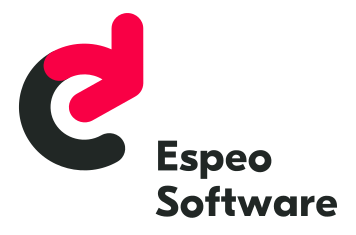We recently had a chat with two experienced medical professionals, Dawid Wiener and Przemysław Bogacki. They decided to combine their strengths as a medical/pharma researcher and a doctor to create a clinical research product. How do they feel about combining the strengths of IT solutions and healthcare: from digital health to pharma IT?

1. What is your opinion on digital health?
Digital health is a hot topic. Everybody’s talking about it. We, as doctors and researchers, have our reservations. There are plenty of consumer healthcare solutions, but only a few have shown their value so far. On the other hand, the prognosis is that the digital health movement is going to grow and develop. We definitely agree. Even regular patients and doctors will probably end up utilizing mHealth or wearable solutions. But when you get to the clinical research part… things are not so shiny anymore. It just can’t be cool and fancy. Here, we will see changes that will be more gradual. If there’s a real problem and an effective solution, the influence of technology can be immense. For us, it’s still like the contrast between going to an esteemed professor versus using a health encyclopedia. Sometimes people blindly jump into a field which really demands a high level of competence.
2. So, what are the main reservations or doubts you have about digital health solutions?
Is the data I’m generating of any use? How can you integrate wearables into the healthcare world? The credibility of regular wearables is still disputable. There’s the human factor, mistakes, the naivety of some solutions, the matter of technical adaptation… We don’t want to be too pessimistic, though. We really appreciate the freshness of perspective. We’re actually glad there are young, energetic entrepreneurs focusing on those areas. We need their ideas. We were also glad to see Apple’s Research Kit, though it’s more for scientific rather than clinical research.
3. What changes in medical technology do you see happening in the next few years?
We have no doubt that the next decade will be the decade of medical technologization. We’re likely to see the consumerization of corporate solutions, moving closer to the regular customer. Remote technologies, data aggregation, aiding the diagnostic process – these digital health solutions are already making an impact. But pharma, for instance, is still IT-agnostic, and some rules of this industry must be respected.
The world is clearly on the verge of great change. The use of data in diagnostics will change. The technical mentality of doctors will change (though, possibly, not that quickly in Poland). The character of clinical work will not, but its effectiveness will rely on technologies that support it. That’s why we’re focusing on this. Technology should do at least some of the thinking for us!
4. What can you tell us about your pharmaceutical/medical tech project?
Our project, Clinwork, is currently at its seed phase, we had a pretty good pilot two years ago. We came up with a way to integrate communication and management in clinical research, so it’s kind of like a blend of Slack and Asana. Basically, it’s a productivity tool directed at both doctors and researchers. And mind you, not all doctors are researchers. We needed something to get them to work together. For instance, let’s say you’re running your private medical practice, and you’ve got a patient that might benefit from a new drug that’s still being tested. Thanks to our system, you’ll be able to signal the clinical research coordinator, who can include the patient in the testing process.
Right now, we have a big problem with the lack of channels that help the doctors stay informed if there are possibilities to use a new drug. Last year, there was a new drug for Alzheimer’s disease that was available at only five places in the country. People outside of this small circle should at least have been informed that a possibility to use something new existed, and should be allowed to make a decision to use it themselves. There was a problem with the flow of information that we decided to address.
5. Why is clinical research so unique and different when it comes to IT solutions?
Clinical research is very complicated, it’s a long process, there’s the sponsor’s involvement, data transcription… we wanted to speed things up a bit, make it all more efficient. It’s based on queries, and the regular waiting time for those queries to be addressed can be 2-3 longer than is generally accepted. It wasn’t all that rare to have queries waiting for 100 days or more. So our other system is centred on suggestions on how to carry out protocol better. One day’s delay in clinical research costs 40.000 dollars. It’s obvious you want everything done faster. Alternatively, you don’t want to invest in more research if you see the right data and know something is just not viable for development. Time is precious here. We saw a niche, a legitimate need, and we decided to combine our experiences and turn to a software house to get it done. To tell you the truth, this is actually something we’d happily use ourselves.
We’ve written about digital health solutions before, and maybe we’re a little more optimistic: we’ll see where the breakthroughs take us.




